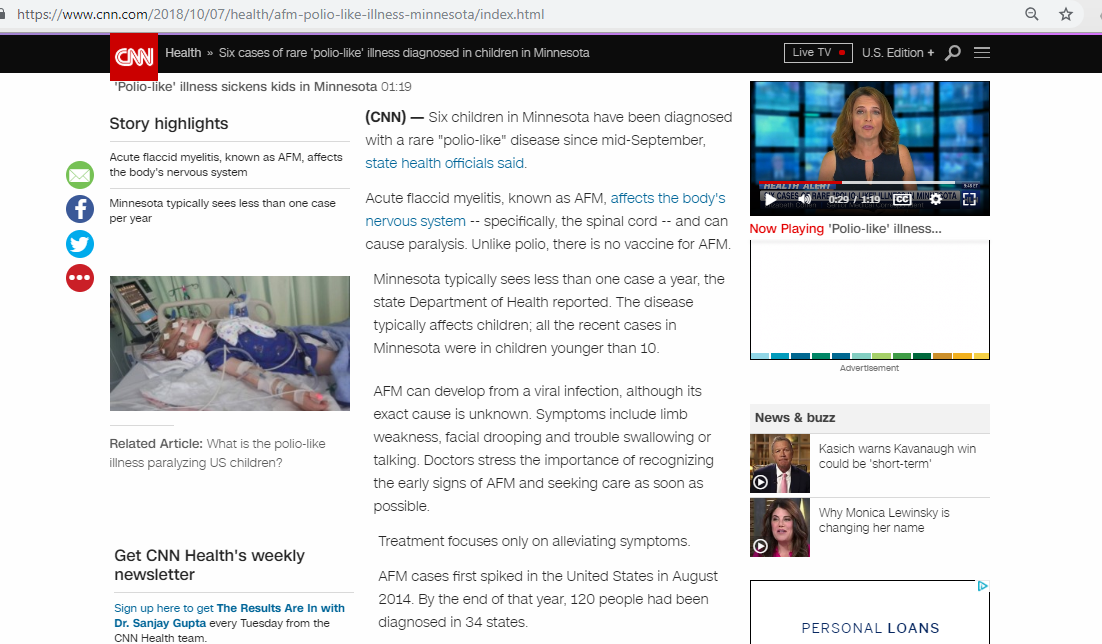Polio-Like Illness Diagnosed in Children in Minnesota
Six cases of rare 'polio-like' illness diagnosed in children in Minnesota
(CNN) Six children in Minnesota have been diagnosed with a rare "polio-like" disease since mid-September, state health officials said.
Statement on cases of acute flaccid myelitis
The Minnesota Department of Health (MDH) issued the following statement today regarding reported cases of acute flaccid myelitis (AFM) in six children around the state over the last few weeks. AFM is a rare but potentially severe condition that can arise following an infection, and in some cases it can lead to death, paralysis or other long-term health impacts.
The Minnesota Department of Health (MDH) is investigating six cases of a rare condition called acute flaccid myelitis (AFM) that occurred since mid-September in Minnesota children.
AFM is a rare but serious condition that affects the nervous system, causing muscles to weaken. It can be a complication following a viral infection, but environmental and genetic factors may also contribute to its development. AFM symptoms include sudden muscle weakness in the arms or legs, sometimes following a respiratory illness. Other symptoms may include:
- Neck weakness or stiffness
- Drooping eyelids or a facial droop.
- Difficulty swallowing or slurred speech.
MDH disease investigators are working aggressively with health care providers to gather information about the cases. The department is also in contact with the Centers for Disease Control and Prevention (CDC) to share information.
For reasons not fully understood, AFM affects mainly children. All recent Minnesota cases have been in children under 10 years old and all were hospitalized. Cases have been reported from the Twin Cities, central Minnesota and northeastern Minnesota.
There was a national uptick in AFM cases in 2014. Disease investigators believe this was linked to an outbreak of a respiratory illness in children that was caused by a virus known as enterovirus D 68 (EVD68). Minnesota saw three AFM cases that year. Since then, we have typically seen less than one case a year.
Since AFM can develop as a result of a viral infection, MDH recommends parents and children take basic steps to avoid infections and stay healthy:
- Wash your hands frequently to limit your exposure to germs.
- Cover your cough or sneeze.
- Stay home if you are sick.
- Stay up to date on vaccinations.
- Protect yourself and children from mosquito bites if you’re spending time outside.
If parents see potential symptoms of AFM in their child, (for example, if he or she is not using an arm) they should contact their health care provider as soon as possible. AFM can be diagnosed by examining a person’s nervous system, taking an MRI scan and testing the cerebral spinal fluid. It is important that tests are done as soon as possible after someone develops symptoms. While there is no specific treatment for AFM, doctors may recommend certain interventions on a case-by-case basis.
-MDH-
Doug Schultz
MDH Communications
651-201-4993
https://www.health.state.mn.us/news/pressrel/2018/myelitis100518.html



